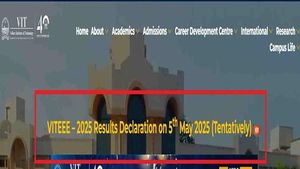The Iranian rapper Amir Tataloo, known for his fusion of rap with pop and R&B, faces the prospect of execution after being sentenced to death for blasphemy. This dramatic turn of events marks a significant escalation of tensions between artistic expression and state repression within the Islamic Republic of Iran. The songwriter, whose real name is Amir Hossein Maghsoudloo, initially received a five-year prison sentence but was sentenced to death following the prosecution's successful appeal.
Reported by the reform-oriented newspaper Etemad, the court ruling stated, “Because of his insult to the Prophet Muhammad, the defendant has received the death penalty.” The judgment has sent shockwaves through both Tataloo’s fanbase and the international community; this controversial artist has been at the center of public debate for years due to his provocative lyrics and criticism of the Iranian state.
Tataloo's rise to fame is marked by stark contrasts. Rising to prominence in the late 2000s, he was initially embraced by conservative politicians who viewed him as a tool to engage young, liberal audiences. His popularity soared, with nearly 200,000 monthly listeners on Spotify, including significant followings from cities like Frankfurt and Toronto. But the artist's alignment with the political establishment did not last.
By 2018, Tataloo had relocated to Turkey, fleeing Iran’s oppressive music industry climate after the authorities revoked his license to perform. Despite moving abroad, his troubles continued; he was arrested on drug-related charges based on international warrants and was detained briefly before being extradited back to Iran by Turkish authorities at the end of 2023. His return led to immediate detention and charges against him, including "encouraging the younger generation toward prostitution" and disseminated "obscene content," reflecting the Iranian regime's growing intolerance for dissent.
The death sentence has drawn attention not only to Tataloo’s case but also to the broader pattern of human rights abuses occurring under Iran’s strict governance. The United Nations has raised alarms about Iran's unprecedented rise in execution rates—with figures hinting at over 900 executions last year alone, most of which pertained to drug offenses but increasingly included political dissidents.
With sources noting Tataloo's past support for the Iranian nuclear program and his controversial song titled “Nuclear Energy,” which defended the nation’s right to nuclear development just before the 2015 international accord, the artist's narrative has grown increasingly complex. Once hailed as a symbol of youth culture, he quickly transformed from regime favorite to state enemy, as several artists before him have faced similar fates under the current regime embodied by Supreme Leader Ayatollah Ali Khamenei.
At present, Tataloo's legal team aims to appeal the ruling, which is still not final. There is hope among his supporters, who are calling attention to the inconsistencies within the judicial processes of Iran, where many dissidents have faced wrongful accusations and sentences. A local advocacy campaign has already begun to garner international support, following the pattern of past efforts seen during uprisings against the regime.
Tataloo's case vividly encapsulates the struggles faced by artists under the regime—the battle between expressing individuality and the risks associated with state opposition. It poses serious questions about the status of artistic freedom and the perils of dissenting against authoritarian rule. Despite the gravity of the situation, the rapper's fans remain hopeful for justice and resolution, emphasizing the need for artistic voices to thrive even under the harshest conditions.
His imprisonment and sentence stand as stark reminders of the ever-present conflict between government control and personal expression, underscoring the need for international scrutiny and advocacy for human rights within Iran. Tataloo’s fate now hangs precariously as he navigates the complex legal and cultural terrain of his home country, with the world watching anxiously.



